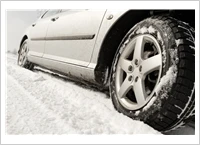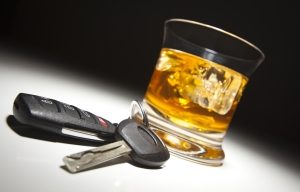
As cold weather quickly approaches, it may be beneficial to keep a few winter driving safety tips in mind. The National Highway Traffic Safety Administration recently compiled this list of winter driving tips:
Before You Go
- Get Your Vehicle Serviced
- It can be frustrating for a vehicle to break down or not cooperate at any time during the year, but it can be especially exasperating when it happens in cold, snowy, or icy weather. It is always important to get your vehicle checked, and that is especially true heading into the winter months. Allow a mechanic to give your car a tune-up, check for leaks, needed parts, and any other necessary repairs.
Safety First
- Protect Yourself and Your Loved Ones
- As always, be sure to wear a seat belt. Not matter the distance of travel or other circumstances, seatbelts should be worn at all times.
- Protect Your Children
- Any child under the age of 13 should be properly buckled in the back seat.
- When dealing with children, it is important to make sure that their appropriate seat is securely fastened in the vehicle, and that it is appropriate with their age and size.
- When riding in the vehicle, consider taking some of the child’s outer layer of clothing off and replacing it with blankets. The thickness of clothing can restrict the safety of harnesses.
- In no circumstances should a child ever be left unattended in or around a vehicle.
- To prevent children from playing or getting confined inside of a vehicle, always lock it upon exiting.
- Visit https://www.nhtsa.gov for more information on child passenger safety and selecting the right seat for your child’s size and age. You can also use the Child Car Seat Inspection Station Locator to find the nearest station to you.
On The Road
- Stay Alert
- Even if you don’t usually maintain a full tank of gas, you should during winter months. As we experienced just a couple of years ago in metro-Atlanta, being stuck in your car is a very real possibility during a traffic jam caused by snow or ice. Having the necessary amount of fuel could be the difference to keep warm and arrive home safely.
- Be smart in knowing when to drive. If the roads are hazardous, avoid driving until they are safer for travel.
- When taking longer trips, plan enough time for rest, time to eat, returning calls, and taking driving shifts. It is important to be as alert and well rested as possible when operating a vehicle.
What To Do in a Winter Emergency
- If you find yourself trapped in bad weather, follow these safety rules:
- Don’t abandon your vehicle.
- Position bright markers on the windows or antenna of your vehicle for better visibility. Also keep the interior dome light on.
- If you run your vehicle, remove snow away from the exhaust pipe and run the vehicle just long enough to stay warm. Do not run your vehicle for a long time in an enclosed area or with the windows up, as this will increase the risk of carbon monoxide poisoning.
We hope that these winter travel safety tips will save readers from unnecessary headache this holiday season. For more vehicle safety information, visit www.nhtsa.gov.
Categories: Auto Accidents, Car Accident, Personal Injury, Safety Tips




